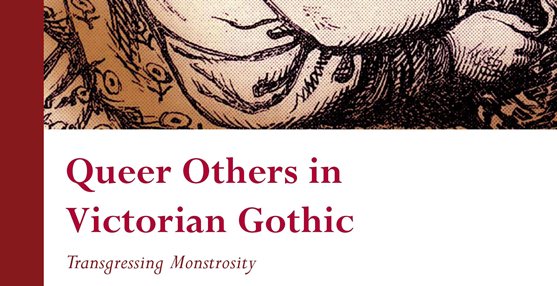One of our authors from the Gothic Literary Studies series gives her thoughts on the field:
In August 2013, the International Gothic Association held its bi-annual conference at the lovely University of Surrey in the south-east of England, UK. As always, the Gothicists pulled off yet another brilliant conference. I am a tenured faculty member as well as a department chair in the United States, but this is the one conference that I always make sure to attend; the following is why.
As an academic, I have, in many ways, been “raised” by the International Gothic Association. The first IGA conference I attended was in the summer of 1995 in Stirling, Scotland. As a graduate student in Victorian Cultural Studies and Queer Studies at Stanford University, I could not believe that my paper proposal had been accepted by an international conference! So, off to Scotland I went to talk about Dracula (of course). What happened over the course of the few days in Stirling helped shape me as a scholar, but possibly more importantly as an educator. Although I am sure I had some very essentialist and “re-invention of the wheel”–type things to say about Stoker’s classic novel, everyone at the conference treated my ideas with interest and respect. And what struck me at the time in 1995 and continues to impress me about this conference – above all others – is that sense of kindness, respect, and collegiality that goes on at the IGA. Sure, we often have academic debate, but I think that everyone attending has a sense that they are in a community of scholars – that there is not necessarily this “one–upmanship”, if you will, that goes on at other academic conferences (at least here in the United States) that shall go nameless…
I had conversations with first–time presenting graduate students at Surrey similar to those I had at Heidelberg two years ago – conversations to reassure them that they had nothing to worry about even if they were on the same panel as some of our more famous (or shall I say, infamous) Gothicists. And that is the beauty of this conference. You can be a new graduate student and this can be your first conference, but you might very well find yourself on a panel with Bill Hughes and Andy Smith or Sue Zlosnik and Avril Horner – and you will be honoured and respected in the same ways that these leaders in our Gothic Studies are. I cannot think of a more fun and egalitarian conference. Ultimately, though, I suppose it comes back to that fact that we are all “freaks” in the literary and cultural field. We all explore, study and love a rogue genre, if you will. And in our often having to defend why we study Gothic, I think we form tight bonds as scholars, regardless of where on the academic spectrum (and beyond) we may be.


